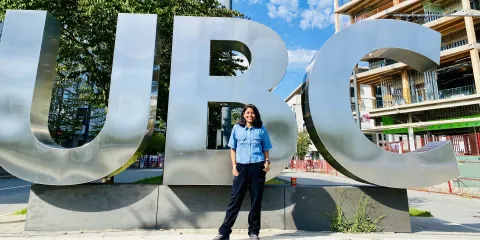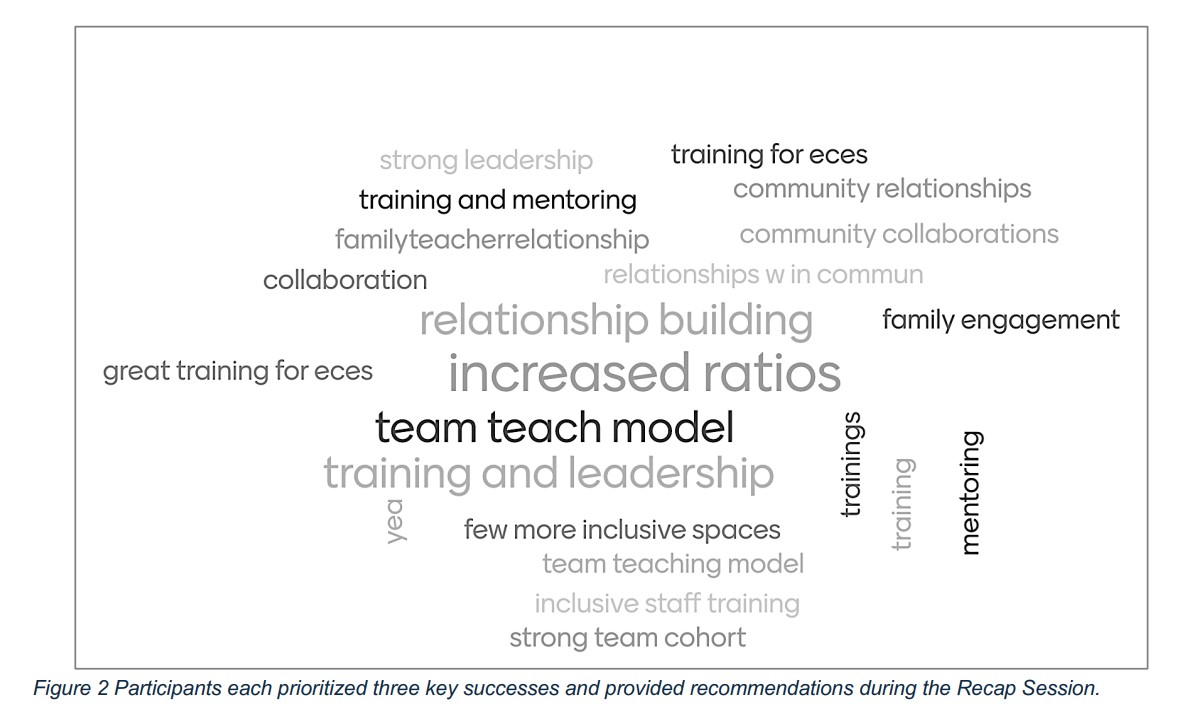This project, undertaken by the City of Vancouver’s childcare team in collaboration with the City’s anti-racism, equity, and accessibility team, aimed to gain a deeper understanding of the challenges and opportunities in providing high-quality, inclusive childcare for children with disabilities. Using a mixed-methods approach, the research combined a review of more than 100 academic and grey literature sources, a scan of best practices (three Canadian and two international cases), and qualitative engagement with 16 participants from non-profit childcare operators and allied service organizations in Vancouver. Data collection included three focus group discussions and two interviews with participants in both operational and management roles.
The project followed an iterative model, where insights from interviews and focus groups refined the research scope and methods, leading to the identification of three central themes:
- physical design of childcare spaces,
- early childhood educator (ECE) workforce development and training, and
- systemic reform, resourcing, and policy.
Findings emphasized that accessibility is crucial to equitable childcare and that cross-sector collaboration linking policy, design, workforce, and community expertise is essential. The key findings also shaped a set of recommendations provided to the City of Vancouver, provincial and federal governments, post-secondary institutions providing ECE training, and childcare operators for enhancing equitable, high-quality childcare.
Although the primary focus was on providing quality care for children with disabilities, the outcomes benefit all children, families, educators, and service providers, including health experts within the ecosystem. Higher-quality care is achieved when physical spaces are flexible, staffing is strengthened, and policies are inclusive to accommodate diverse needs. Every child requires support at some stage, and since the COVID-19 pandemic, addressing children’s mental health has become increasingly important. The steps taken through this initiative are expected to create long-term, positive impacts for future generations, not only within Vancouver but across Canada, fostering a better future for children and the communities they belong to.
Childcare centres do not exist in isolation; they function as part of a broader ecosystem involving children, families, communities, ECEs, service providers, municipalities, provincial and federal governments, health organizations, and design professionals. Each plays an essential role in supporting equitable and high-quality opportunities for children. By mainstreaming accessibility and inclusion into the core of childcare programming through universal design that goes beyond the minimum requirements of design guidelines, embedded inclusive workforce training, and replacing diagnosis-based funding with flexible, needs-based supports, childcare can strengthen outcomes for all, advancing equity and collective responsibility across the system. Stronger collaboration across stakeholders is essential to build inclusive spaces that uphold every child’s right to care and well-being.



